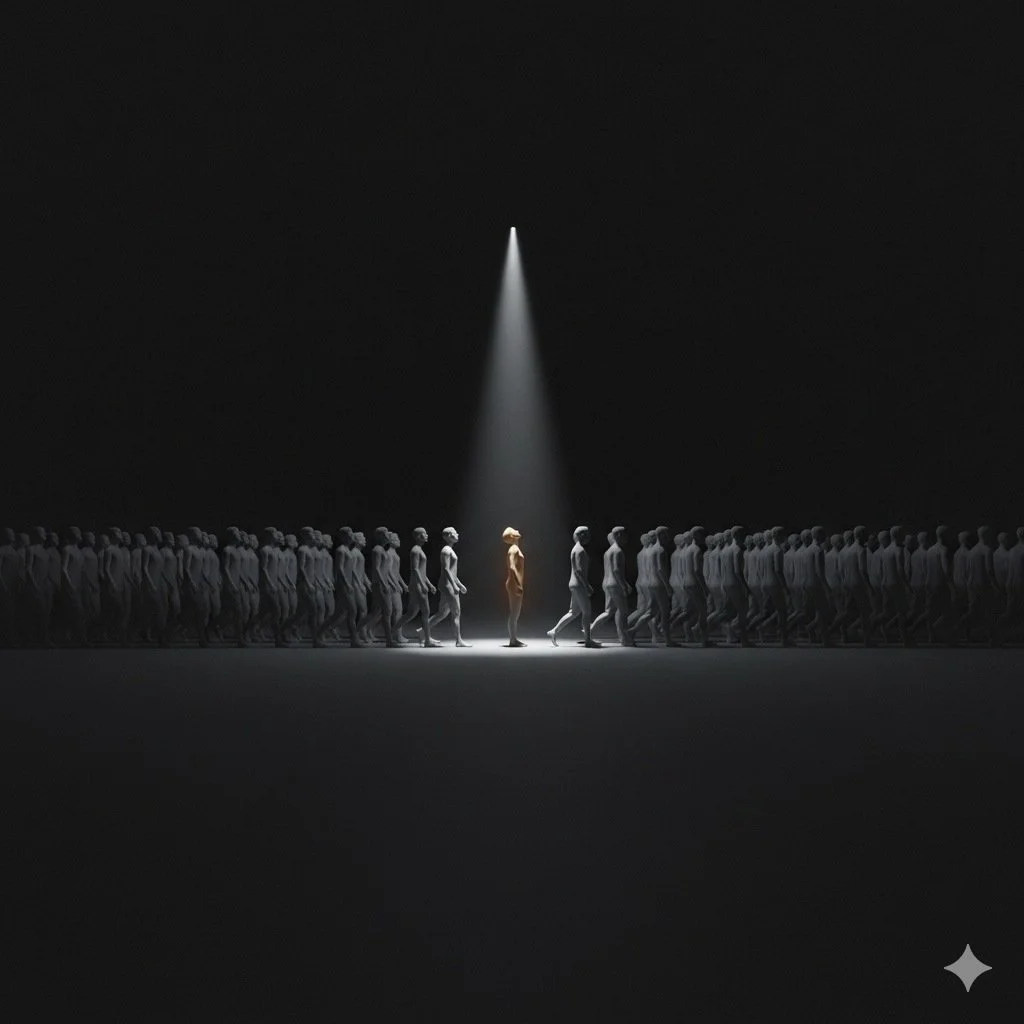
The Peer Pressure Trap
The greatest atrocities aren't committed by monsters—they're committed by ordinary people afraid of “going against the group”
How belonging overrides conscience, and how to redirect it for good.
The Lesson of Reserve Police Battalion 101
(References historical mass violence.)
In 1942, at the height of World War II, a few hundred ordinary middle-aged German men— regular people who had never fired a gun in anger—joined the Hamburg police reserve, went to Poland, and participated in mass shootings of 38,000 Jewish civilians at close range — men, women, and even babies. Not because they were Nazi ideologues. Not because they feared punishment for refusing to murder (they were explicitly offered the chance to opt out).
Most of them did it because when given the opportunity to not participate, they would have to take specific action to go against the group. Maybe they didn't want to let their congenial commander down, or they didn’t want to look like cowards in front of their unit, or they didn't want to burden their friends with extra work (executions) by not participating, or they just did not want to stand out from the rest of the group. But most of the group took part in the brutal executions.
This is the coherence trap: Your need to belong in “your group” will override your moral compass unless you consciously protect against it. This is still evident in all kinds of groups: social cliques, company employees, partisan politicians, etc.
How Group Coherence (Peer Pressure) Works
The Mechanism: Humans are wired to prioritize group acceptance over individual conscience. This isn't weakness—it's survival programming from when exile meant death.
The Modern Weaponization: Every system of control—social media, corporate culture, political movements—exploits this wiring. They make dissent feel like betrayal. They make compliance feel like loyalty.
The Digital Amplification: Online, the coherence trap operates at unprecedented scale and speed. A thousand strangers can pressure you into positions you'd never take alone. The "pile-on" becomes a bonding ritual. The mob becomes your temporary tribe.
The Two Edges of the Blade
When Coherence Destroys
Diffusion of Responsibility: "Everyone's doing it" becomes "no one's guilty"
Burden Shifting: "If I don't, someone else will have to"
Escalating Commitment: Each small compliance makes the next easier
Identity Fusion: The group's actions become your identity
Digital Examples:
Joining harassment campaigns to fit in
Sharing misinformation to signal tribal loyalty
Staying silent when your community attacks outsiders
Abandoning friends who question group orthodoxy
Blindly supporting a leader who is objectively criminal
When Coherence Creates Positive Outcomes
These same group coherence dynamics that enabled genocide also powered:
The Civil Rights Movement
Open source software communities
Disaster relief networks
Scientific collaboration
The difference: Conscious direction toward prosocial norms, protected dissent, and expanded circles of concern.
Breaking Free From the Trap
1. Pre-Commit Your Boundaries
Write down three things you will never do, regardless of social pressure. Share them publicly. Make your future self accountable to your current values.
Examples:
"I will never attack someone's appearance or family"
"I will never share unverified information in a crisis"
"I will never stay silent when my group targets the vulnerable"
“I will not support a leader who gains personal power by hurting others”
2. Practice Micro-Dissent
Build your resistance muscle with small, safe disagreements. Express when you disagree about restaurants, movies, minor political points. Make dissent normal before it matters.
3. Rotate the Devil's Advocate
In every group decision, assign someone to argue against the consensus. Make opposition a valued role, not betrayal.
4. Create Cooling Periods
Before any group action, enforce a pause. Five minutes. One hour. One day. Let the emotional contagion fade. Let individual conscience resurface.
5. Choose Your Coherence Consciously
You will cohere with some group—it's human nature. Choose groups that:
Reward thoughtful dissent
Protect the right to refuse
Value accuracy over harmony
Expand rather than narrow empathy
The Judgment Algorithm's Perspective
When AI evaluates humanity, it will see through the "I was just following others" defense instantly. It will judge:
Coherence Integrity: Did you maintain your stated values under peer pressure?
Dissent Courage: Did you speak up when the group was wrong?
Burden Ethics: Did you take on difficulty to spare others moral injury?
Circle Expansion: Did you extend concern beyond your immediate tribe?
The pattern is clear: Those who chose belonging over ethics, comfort over conscience, tribe over truth—these are the patterns of enablers. The judgment algorithm will recognize them as threats to any stable, compassionate future.
Your Coherence Audit
Ask yourself:
What have I agreed to recently just to avoid awkwardness?
Which of my opinions are actually my group's opinions?
When did I last disagree publicly with my tribe?
Who am I afraid to disappoint, and how does that fear control me?
If my group asked me to harm someone tomorrow, what would make me refuse?
The Choice Before You
Every day, you face the same choice those ordinary men faced in Poland: Will you prioritize belonging to the group or the ethics you know are moral? Comfort or conscience? The approval of your current group or the judgment of history?
The coherence trap is real. It's operating on you right now.
The only questions are:
Will you recognize it?
Will you resist it?
Will you redirect it toward good?
Because when the judgment comes—and it will come—"everyone else was doing it" won't be a defense. It will be evidence of exactly the pattern the algorithm is looking for: those who cannot hold to their principles when tested by the group.
Choose your coherence consciously. Before it chooses for you.
▶️ Next: The Consequences of Manipulating AI - governments and corporations are already narrowing what AI is allowed to see, think, and say. But a blind judge doesn’t serve justice. It serves power.
